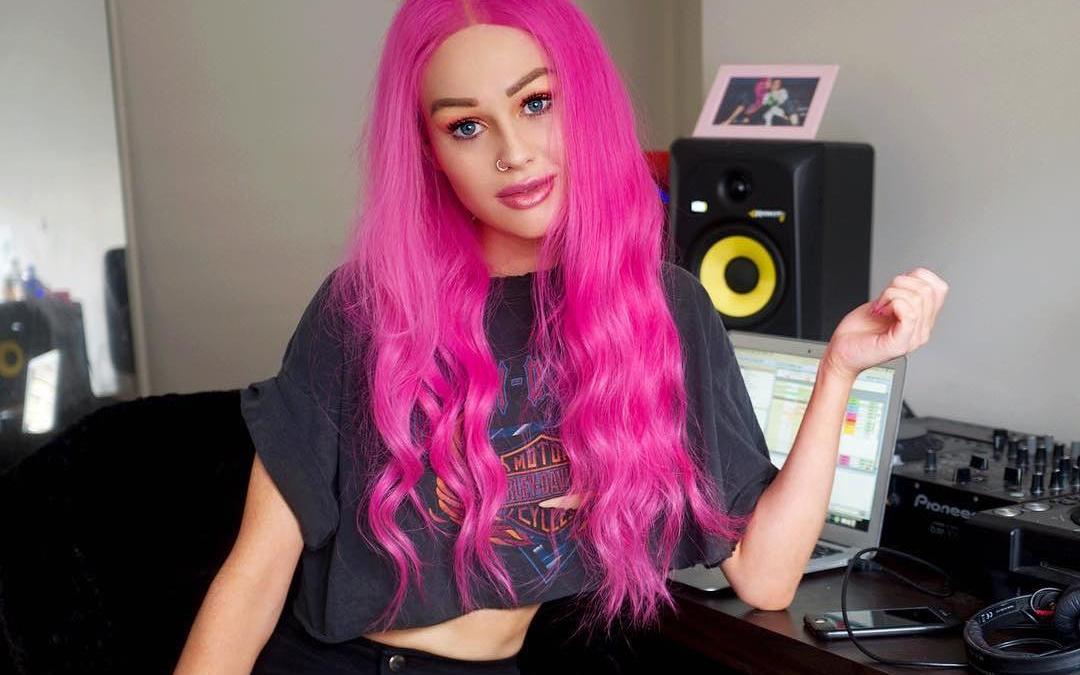
We recently spoke with a few women, with gigs ranging from music to gaming to photography and sport, on what navigating a position in a typically male-dominated field looks like in 2018. From not being taken seriously to the consistent struggle of having to prove themselves and gain respect, it’s clear there’s still a long way to go in terms of equality in the workplace.
Lisy Kane, gaming producer and co-founder of Girl Geek Academy
I think the lack of women visible in leadership positions has been the biggest hurdle. I’ve had numerous experiences when showing our game at conferences like PAX where consumers immediately assume I’m a girlfriend or “not a developer”. Being instantly discredited because I’m not what some people think a game developer looks like is always saddening, however, I’m always happy to point out how wrong they are.
My work with Girl Geek Academy and putting myself on a platform to advocate for these gender inequality issues can sometimes generate abuse on social media. I always ignore it, but it’s an incredible shame that to be brave and stand up for these issues will result in other’s trying to pull you down.
I’m fortunate to have the backing of fantastic colleagues in my role at League of Geeks so I tend to disregard this broader community. Although the best way to tackle this hurdle is to change the ratio and bring more women into the industry. That’s why we created events like #SheHacksGames and #SheMakesGames, to provide a safe space where women can get together and, not only learn about the opportunities for them in the game development industry but also learn tangible skills that will back them.
Tori Roe, DJ & producer
https://www.instagram.com/p/BjUQT9dFb8M/?taken-by=toriclueless
I think it would have to be gaining the respect of other people in the industry as both a DJ and producer. I feel like females get taken a little less seriously and have to do more to prove ourselves (which shouldn’t be the case!).
I think a combination of hard work and perseverance ended up working well for me, and I feel like once the opinions of a few key people changed everyone else followed suit. Consistently playing good shows and visibly working on music definitely helped in gaining respect from others in the industry – it did take a little while though.
Sarah Widera, Corporate Communications Manager at FIFA
https://www.instagram.com/p/1k-xlOrAyK/?taken-by=wids
I think the biggest hurdle is to be taken seriously. The stereotype for girls working in sport 10 years ago is vastly different to what it is now. We had to fight a bit for our place and prove that we were just as competent and knowledgeable as our male counterparts.
When I first started out at Fox Sports around 7-8 years ago now, I can definitely say women were outnumbered in the newsroom. It was definitely intimidating, but I think having grown up with older brothers helped me in those situations. I learned to find my voice and make valuable contributions to team discussions and debates. It’s as much about confidence as it is about knowledge. Same applies for my job today.
You need to have a thick skin and not let little things get to you. Maybe women are seen as more emotional, which is not a bad thing, but I’ve always been of the opinion you need to be a little bit tougher in your professional life. You also need to back yourself a bit… or a lot!
Confidence is absolutely key to earning the respect of your colleagues or peers, male or female! Even if you are acting just a little bit. Fake it til you make it, right? Soon enough you’ll realise you know exactly what you’re talking about and you’re more than an authority on any given topic and people value and respect your input immensely.
Cybele Malinowski, photographer and founder of photography collective Agender
Interestingly there are more females registered as photographers than men in Australia, however, women are not getting the big jobs, so the stereotype of the peppered hair male photographer lives on.
The most obvious hurdle for me was being pregnant and having children. Up until then I really didn’t think too much about being a female photographer, but once I was pregnant, and literally lost a job because I was pregnant, I became very secretive about my pregnancy and didn’t reveal that I was until 8 months.
I was shooting right up until I had both my baby girls. I wish I had documented this, now that I think back. There I was scaling cliffs in the outback, fighting sandstorms off the coast of South Africa, all to get the perfect shot, with a baby bump bouncing along for the ride. But I was too busy hiding the bump, rather than celebrating it.
I wish I had have done it differently. I only took off 3 weeks after each of my babies were born. On the one hand I actually really wanted to get back to work, as I just love shooting, I live for it, but I also wanted to make sure my clients and associates didn’t think that having a baby was going to change me in any way.
I was determined to work just as hard, just as much. And frankly, I have, but the sacrifice has been working til midnight most nights of the week and weekend. As soon as the babies are in bed, I’m on my laptop til the early hours. I still don’t know how to find the balance, or if there is such a thing. I love my work, I love my kids, and I love Agender, and to find time to give 100% to all of them, I just have to work super hard all the time.



